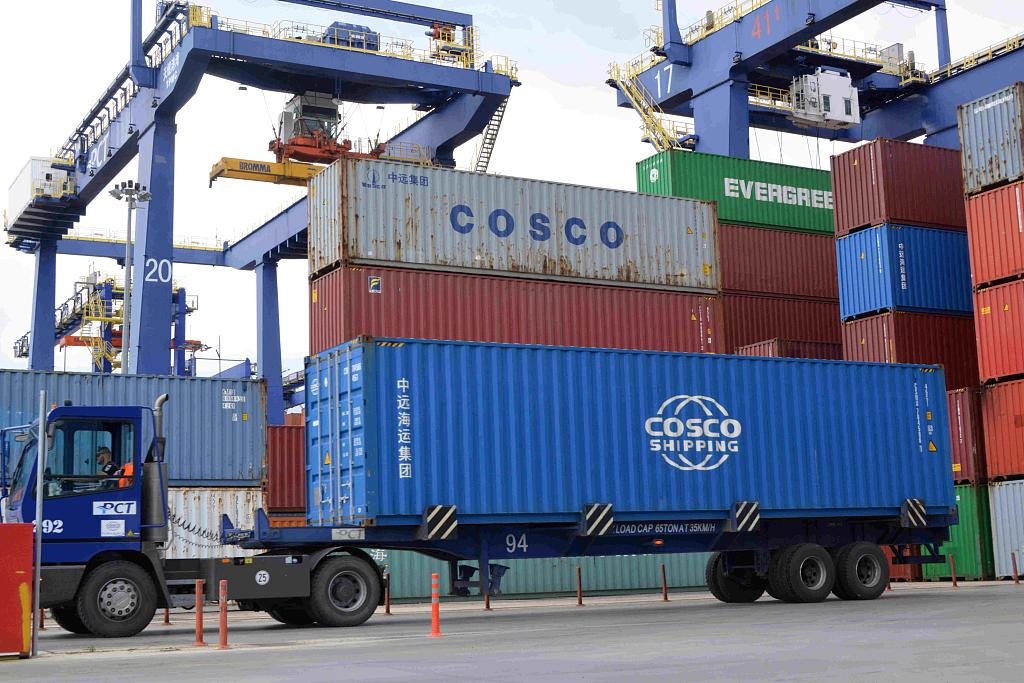Editor's note: Hu Hong is an assistant research fellow at the Department for European Studies at the China Institute of International Studies. The article reflects the author's opinions, and not necessarily the views of CGTN.
China and Greece are good, true, close and new friends – the current status of Sino-Greek relations was generalized into these four words by the Chinese Foreign Ministry.
While the four characteristics have their own references, they all point out the uniqueness of Sino-Greek relations. Among the many achievements of the Sino-Greek relations, several require specific attention: Greece was one of the earliest member states of the European Union to sign a memorandum of understanding on the Belt and Road Initiative (BRI) with China. This April, Greece officially joined the Cooperation between China and Central and Eastern European Countries. Just last week, Greece participated in the second China International Import Expo (CIIE) as one of the guests of honor countries and Greek Prime Minister Kyriakos Mitsotakis was received by Chinese President Xi Jinping in Shanghai. All these suggested even closer ties between the two ancient civilizations.
Concrete projects constitute the solid foundation for Sino-Greek relations. Just as leaders on both sides noted, the Piraeus port project delivers not only fruitful results for the people of both countries, but is also a flagship project that is playing a leading and demonstrative role in the joint building of the BRI. Besides the Piraeus port project, practical cooperation in different sectors brings more dynamics to the bilateral relations. Trade volume has increased by more than 20 percent. Cooperation in maritime, ICT and energy sectors were also highlights of the past few years. Both countries were also initiators of the Ancient Civilizations Forum, which brought fresh impetus to the people-to-people exchanges between the two countries. With all these above as a basis, President Xi's ongoing state visit to Greece would further promote the Sino-Greek relations in every respect.

Containers shipped from China sit in the Piraeus port, Greece, November 4, 2019. /VCG Photo
Containers shipped from China sit in the Piraeus port, Greece, November 4, 2019. /VCG Photo
However, this visit has further and deeper implications than an upgrade of the Sino-Greek relations, it should also be understood via the perspective of China-EU relations and even the overall dynamics of international relations. This could be revealed by two arrangements. Firstly, as this year is coming to an end, if we trace President Xi's foreign journeys in 2019, it is clear that his state visits both start and end with European countries. Secondly, while attending the BRICS summit is a yearly event for the president, choosing which country he will visit on the way, and whether he will fly over Europe and North America en route to Brazil, were two questions that required calculated decisions.
Therefore, it was no surprise to hear that Vice Foreign Minister Qin Gang highlighted the importance of Sino-EU relations in his introduction of the visit. This visit will inject new impetus to the development of Sino-EU relations, according to Qin.
But why should Europe be paid such high attention? On one hand, it is quite natural for China, as a firm supporter of the European integration, to bring about Sino-EU relations when visiting one of the member states of the European Union. On the other hand, Europe's status in Chinese diplomacy seems to be rising against the backdrop of U.S.' determination to decouple with China.
Meanwhile, the rising importance of Sino-EU relations is more than symbolic political gestures. As a matter of fact, concrete results have and will be delivered by the Sino-EU relations. The signing of the landmark geographical indications agreement between the two parties is a recent case. The direct and biggest beneficiaries of China's recent moves of further opening-up were also companies from European countries, such as BMW, BASF, Allianz, etc. And now, both sides eye the coming 2020 as a window of opportunity for further breakthroughs in the bilateral relations. To agree on and publish a new strategic agenda between China and the EU and to conclude the comprehensive investment agreement by the end of 2020 would bring Sino-EU relations to a substantive new era.
(If you want to contribute and have specific expertise, please contact us at opinions@cgtn.com.)